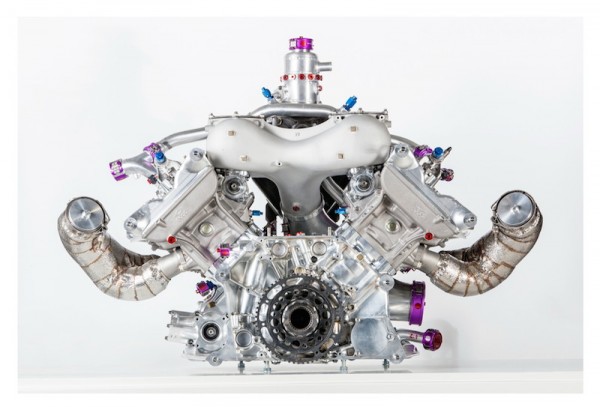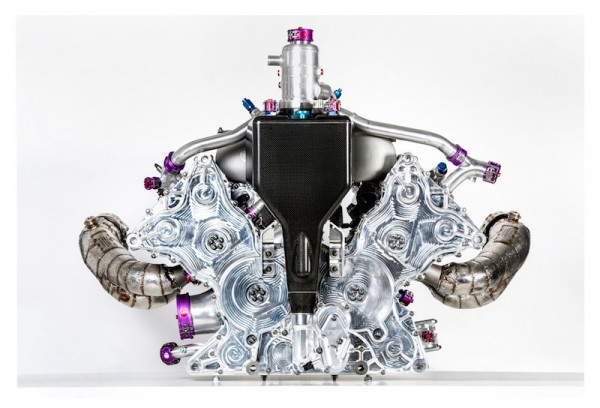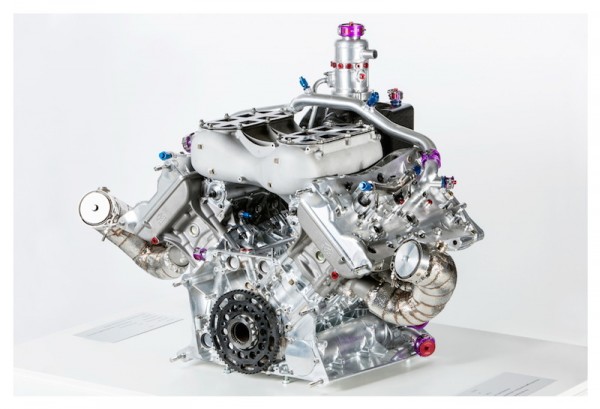When Porsche first announced that their return to Le Mans and LMP1 would be powered by a hybrid drive consisting, in part, of a 4-cylinder direct injected gas engine, people were a bit skeptical. How could Porsche possibly develop enough horse power from a 4-cylinder engine to be competitive. Then, adding insult to injury, Porsche went on to say that these new engines (hybrid drive and all) would eventually show up on the production line and in their street cars. Fast forward three years and not only has Porsche won Le Mans again, parts of the racing technology are already starting to show up in production cars like the new 718 Boxster. That’s most likely the reason Porsche is showing off these pictures of the 919’s gas power plant for the first time.

At just 2 liters in size, the 919’s gas engine is Porsche’s most efficient yet producing more than 500 hp when Porsche won Le Mans for the 17th time.
The world championship engine, with a capacity of only two liters, is the most efficient combustion engine Porsche has built to date. Remarkable for its compact design, it became a trendsetter: the new four-cylinder turbo engine for the Porsche 718 Boxster picks up technology and know-how from this racing power pack. For example, the interspace between the cylinders, the short stroke and the central direct fuel injection are all shared. Alexander Hitzinger, the Technical Director responsible for the 919, said: “Right from the beginning we had a brave concept, but it was also the right concept. This is paying off now.”

Unlike the turbo powered engine found in the new 718 Boxster, the 919’s 4-cylinder isn’t a flat engine. Instead, it has a 90-degree V.
While last year’s 919 gas engine produced more than 500 hp, The 2016 FIA WEC regulations require a lower amount of energy from the fuel used per lap and have reduced the fuel flow for all the prototypes. For Porsche, this results in a loss of 8% of fuel and, therefore, power output translates into a figure of less than 500 hp. But, and it’s a big but, when combined with the electrical energy from the two recovery systems (brake energy from the front axle and exhaust energy) the Porsche 919 Hybrid’s overall power system is now circa 900 hp.

